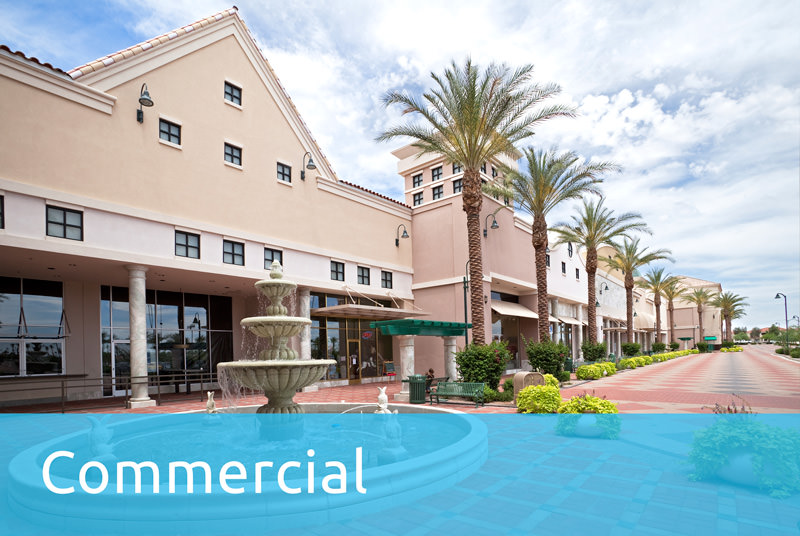
What is Submetering?
Water Sub Metering is the installation of water meters into individual units within a multi-family development (i.e. apartment community, condominiums, mobile home communities, etc.). Typically a multi-family development has either one master meter for the entire development or a meter for each building and the development is responsible for the entire water and sewer bill. This expense is basically divided evenly by the number of units within the development and passed on via rent, association dues, or other forms of payment. Once a development is sub metered, the expenses are now divided based on the consumption of each individual unit. This is obviously the fairest way of dividing this expense. Those who use less water pay less and do not pay for others who use more.
The idea of sub metering has been around for over 20 years. It started with the electric industry. Years ago most multi-family developments had a master meter for electricity and the owners paid the bill for the entire property. This created a lot of waste since the residents of these developments were not directly responsible for their own electric bill. It was determined that when electric sub meters were installed for each individual unit that the consumption of electricity drastically decreased. It has since become the standard in the electric industry to install individual electric meters for each unit within multi-family developments. This is what is now occurring in the water industry.
Unlike residents individual electric meters, the property will still pay their monthly water/sewer bill to the local municipality. A Utility Services company will read the residents meters, bill the resident for their usage, collect from the resident and remit payment less the billing fee along with management reports to the property on a monthly basis.
WHY IS THERE A NEED FOR SUB METERING?
The water and sewer bills for multi-family developments are one of the largest expenses for the community. In the past, the cost for water and sewer was considerably less than what it is today. With drinkable water becoming a scarce commodity, throughout the United States the cost of water has been increasing very rapidly. This is partly due to the increased regulations by the government and partly due to the rapid population growth. Almost weekly there are articles about shortages of water. Many people have experienced these shortages in the form of water restrictions. It is inevitable that conservation efforts are going to be enforced in the future. That is why water sub metering has become one of the most popular topics in the multi-family industry today.
Not all properties are being sub metered today and not all properties are able to be sub metered. But between 90% and 95% of all new construction of apartment communities are being sub metered and over the next few years, the majority or apartment communities that can be sub metered will be installing a system. In the future many states will start requiring multi-family communities to sub meter or possibly offer incentive programs to do so.
HOW DOES THE SYSTEM WORK?
Once a multi-family development decides to install water sub meters they typically select a company that specializes in this industry. The sub metering company will first make arrangements with the owners to install the necessary equipment for the system (i.e. water meters, transmitters, reading equipment, etc.). The sub metering company will typically have to gain access to each unit in order to install this equipment, unless it can be installed on the outside of the building.
After the equipment has been installed and tested, the sub metering company will be responsible for the reading of the meters, the disbursement of the bills and the collection of the payments. The sub metering company becomes the utility for the system just like the phone company, Cable Company and electric company. The sub metering company will handle all the customers questions and concerns.
THE ADVANTAGES OF A SUB METERING SYSTEM
There are several advantages for installing a water sub metering system for everyone involved, including the property owners, the residents and also the environment.
The advantage for the property owners is the ability to reduce expenses. The water and sewer bill for a multi-family property is one of the highest expenses the owner incurs. But it is one of the only expenses that they have no control over, because the residents control how much water they consume. By installing a water sub metering system, the residents now become responsible for their own water and sewer bills. This enables owners to reduce their overhead, which allows them to reduce or eliminate rent increases and in some cases even lower rent.
There are also advantages to the residents. The first coincides with the advantage to the owners. If the owners can control the expense for water and sewer, then they can control the amount of rent increases to the residents. This means that the residents will benefit by reducing or eliminating rent increases or possibly even lowering rent. The other benefit is that residents now have control over the expense of water and sewer. Before sub metering, each unit shared these expenses equally. It didn't matter if there was one person or four in a unit; everyone was paying the same amount in one way or the other. After sub metering, each unit pays only for the water they consume and not for anybody else. This allows them to control this expense. It has been proven in the past that if a resident is not responsible for paying a bill (water, electric, etc.) they are more prone to waste that resource. Once sub metering is instituted the resident becomes more concerned with how much of this resource they are wasting. This brings us to the benefit to the environment.
The environment benefits the most from a water sub metering program. Federally granted studies have indicated that a sub metering program alone can reduce consumption between 20% and 30%. This is due to the fact mentioned above that the residents become more aware of how much of the resource they are wasting. Since they are paying for the resource (i.e. water) they will change their habits (i.e. will not let water run without using it, reports leaks they never use to care about, etc.). There is only so much drinkable water in the world today and it is very quickly becoming a scarce commodity because of our ever-increasing population. The cost to produce potable water is increasing at a very rapid rate, anywhere from 3% to 25% per year. If something is not done soon water could become more expensive than electricity in the next few years. This is already the case in some areas of Canada.
ARE THERE ANY LAWS GOVERNING SUB METERING?
Generally speaking, all state laws permit controlled sub metering; however, there are some laws governing what can be charged. These regulations do not permit the sub metering supplier to charge higher rates per gallon than those billed by the water supplier (which we strongly agree with). Other state laws stipulate certain annual filings for compliance. Laws are, of course, changing: new laws governing sub metering will be enacted to prevent overcharging and others will be passed to encourage water conservation. Sub metering will fit within this regulatory structure.
SPECIALIZING IN




